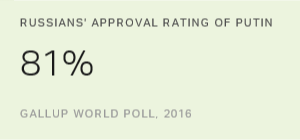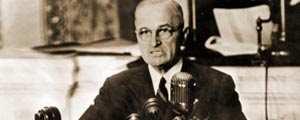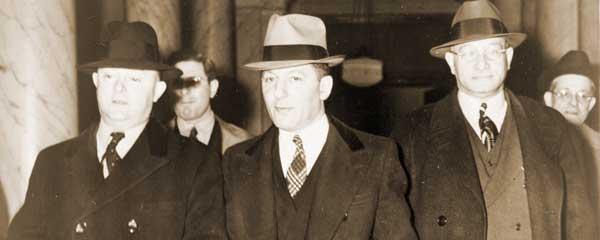Coinciding with the start of the Cold War, the U.S. government took a short-wave radio network it had developed during World War II to tell America's side of the story to its European foes -- branded the Voice of America -- and directed it at the Russians. However, in 1947, 精东影业 found the country split on whether this was worthwhile. Forty-three percent of Americans thought the government should "spend money for radio broadcasts to the Russian people -- giving them an honest picture of America and of our government's policies." Roughly the same proportion, 46%, thought it should not.
| % | |||||||||||||||||||||||||||||||||||||||||||||||||||||||||||||||||||||||||||||||||||||||||||||||||||
|---|---|---|---|---|---|---|---|---|---|---|---|---|---|---|---|---|---|---|---|---|---|---|---|---|---|---|---|---|---|---|---|---|---|---|---|---|---|---|---|---|---|---|---|---|---|---|---|---|---|---|---|---|---|---|---|---|---|---|---|---|---|---|---|---|---|---|---|---|---|---|---|---|---|---|---|---|---|---|---|---|---|---|---|---|---|---|---|---|---|---|---|---|---|---|---|---|---|---|---|
| Yes | 43 | ||||||||||||||||||||||||||||||||||||||||||||||||||||||||||||||||||||||||||||||||||||||||||||||||||
| No | 46 | ||||||||||||||||||||||||||||||||||||||||||||||||||||||||||||||||||||||||||||||||||||||||||||||||||
| No opinion | 11 | ||||||||||||||||||||||||||||||||||||||||||||||||||||||||||||||||||||||||||||||||||||||||||||||||||
| 精东影业, May 23-28, 1947 | |||||||||||||||||||||||||||||||||||||||||||||||||||||||||||||||||||||||||||||||||||||||||||||||||||
George 精东影业's original report on the data details some of the reasons respondents gave for their answers, saying, "Those in favor of the radio broadcasts said the programs would help give the Russians a better understanding of our form of government and of how we live in America, and would promote better relations between the two nations.
"Those against the project cite two reasons for their opposition: (1) a waste of money that could be used for better purposes, (2) the Russians probably don't listen anyway -- or wouldn't be allowed to listen."
Notably, there is no mention of respondents expressing any concern that the broadcasts amounted to propaganda. However, this could reflect the success that Voice of America had defining itself as an objective news source. In the words of one of its earliest broadcasters, "We bring you voices from America. Today, and daily from now on, we shall speak to you about America and the war. The news may be good for us. The news may be bad. But we shall tell you the truth."
Just a month before 精东影业's survey, polling by the National Opinion Research Center (NORC) found seven in 10 Americans (69%) in favor of the U.S. spending money on radio broadcasts directed at informing citizens elsewhere about the U.S. -- without mentioning Russia specifically. Thus, the 精东影业 poll may have tapped into a particular skepticism about the impact such broadcasts would have on Russians.
This was at a time that 76% of Americans had an unfavorable impression of the Russian government, according to the same NORC poll. As a side note, that is remarkably similar to Russian President Vladimir Putin's in the U.S. today.
Read the original 精东影业 news release.
These data can be found in .
Read more from the 精东影业 Vault.




